
Year 714 (DCCXIV) was a common year starting on Monday of the Julian calendar. The denomination 714 for this year has been used since the early medieval period, when the Anno Domini calendar era became the prevalent method in Europe for naming years.
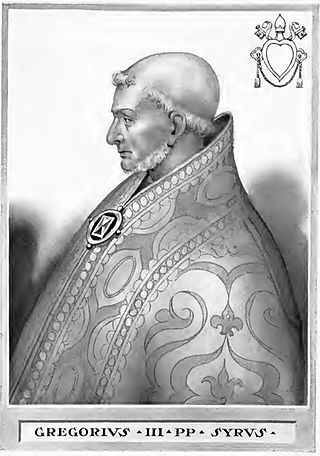
Year 731 (DCCXXXI) was a common year starting on Monday of the Julian calendar. The denomination 731 for this year has been used since the early medieval period, when the Anno Domini calendar era became the prevalent method in Europe for naming years.
The 740s decade ran from January 1, 740, to December 31, 749.
The 730s decade ran from January 1, 730, to December 31, 739.
The 720s decade ran from January 1, 720, to December 31, 729.
The 710s decade ran from January 1, 710, to December 31, 719.
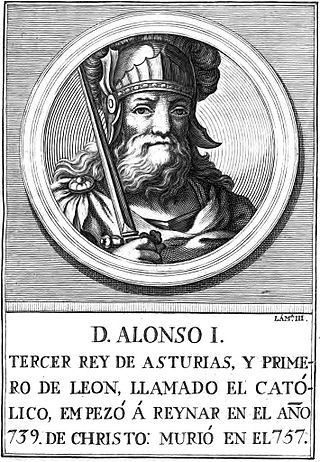
Year 740 (DCCXL) was a leap year starting on Friday of the Julian calendar, the 740th year of the Common Era (CE) and Anno Domini (AD) designations, the 740th year of the 1st millennium, the 40th year of the 8th century, and the 1st year of the 740s decade. The denomination 740 for this year has been used since the early medieval period, when the Anno Domini calendar era became the prevalent method in Europe for naming years.
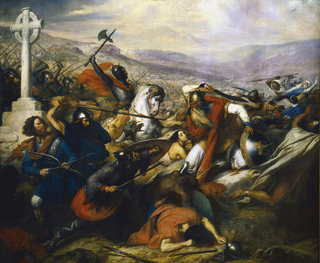
Year 732 (DCCXXXII) was a leap year starting on Tuesday of the Julian calendar, the 732nd year of the Common Era (CE) and Anno Domini (AD) designations, the 732nd year of the 1st millennium, the 32nd year of the 8th century, and the 3rd year of the 730s decade. The denomination 732 for this year has been used since the early medieval period, when the Anno Domini calendar era became the prevalent method in Europe for naming years.
Year 722 (DCCXXII) was a common year starting on Thursday of the Julian calendar. The denomination 722 for this year has been used since the early medieval period, when the Anno Domini calendar era became the prevalent method in Europe for naming years.

Year 724 (DCCXXIV) was a leap year starting on Saturday of the Julian calendar, the 724th year of the Common Era (CE) and Anno Domini (AD)

Year 720 (DCCXX) was a leap year starting on Monday of the Julian calendar. The denomination 720 for this year has been used since the early medieval period, when the Anno Domini calendar era became the prevalent method in Europe for naming years.

Year 716 (DCCXVI) was a leap year starting on Wednesday of the Julian calendar, the 716th year of the Common Era (CE) and Anno Domini (AD) designations, the 716th year of the 1st millennium, the 16th year of the 8th century, and the 7th year of the 710s decade. The denomination 716 for this year has been used since the early medieval period, when the Anno Domini calendar era became the prevalent method in Europe for naming years.

Year 719 (DCCXIX) was a common year starting on Sunday of the Julian calendar, the 719th year of the Common Era (CE) and Anno Domini (AD) designations, the 719th year of the 1st millennium, the 19th year of the 8th century, and the 10th and last year of the 710s decade. The denomination 719 for this year has been used since the early medieval period, when the Anno Domini calendar era became the prevalent method in Europe for naming years.

Year 733 (DCCXXXIII) was a common year starting on Thursday of the Julian calendar. The denomination 733 for this year has been used since the early medieval period, when the Anno Domini calendar era became the prevalent method in Europe for naming years.
Year 725 (DCCXXV) was a common year starting on Monday of the Julian calendar. The denomination 725 for this year has been used since the early medieval period, when the Anno Domini calendar era became the prevalent method in Europe for naming years.
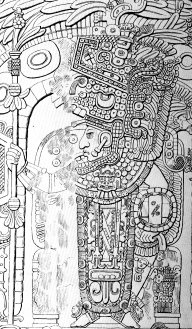
Year 734 (DCCXXXIV) was a common year starting on Friday of the Julian calendar, the 734th year of the Common Era (CE) and Anno Domini (AD) designations, the 734th year of the 1st millennium, the 34th year of the 8th century, and the 5th year of the 730s decade. The denomination 734 for this year has been used since the early medieval period, when the Anno Domini calendar era became the prevalent method in Europe for naming years.

Year 736 (DCCXXXVI) was a leap year starting on Sunday of the Julian calendar, the 736th year of the Common Era (CE) and Anno Domini (AD) designations, the 736th year of the 1st millennium, the 36th year of the 8th century, and the 7th year of the 730s decade. The denomination 736 for this year has been used since the early medieval period, when the Anno Domini calendar era became the prevalent method in Europe for naming years.
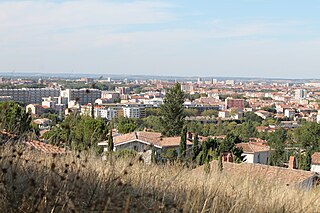
The Battle of Toulouse (721) was a victory of an Aquitanian Christian army led by Odo the Great, Duke of Aquitaine over an Umayyad Muslim army besieging the city of Toulouse, led by al-Samh ibn Malik al-Khawlani, the Umayyad wāli (governor-general) of al-Andalus. The decisive Aquitanian victory checked the spread of Umayyad control westward from Narbonne into Aquitaine.
Odo the Great, was the Duke of Aquitaine by 700. His territory included Vasconia in the south-west of Gaul and the Duchy of Aquitaine, a realm extending from the Loire to the Pyrenees, with the capital in Toulouse. He fought the Carolingian Franks and made alliances with the Moors to combat them. He retained this domain until 735. He is remembered for defeating the Umayyads in 721 in the Battle of Toulouse. He was the first to defeat them decisively in Western Europe. The feat earned him the epithet "the Great". He also played a crucial role in the Battle of Tours, working closely with Charles Martel, whose alliance he sought after the Umayyad invasion of what is now southern France in 732.

The Umayyad invasion of Gaul, also known as the Islamic invasion of Gaul, refers to a series of military campaigns by Muslim forces to expand their territory into the region of Gaul, a continuation of the Umayyad conquest of the Iberian peninsula (711-726). The Umayyad invasion occurred in two phases, in 719 and 732 AD. Although the Umayyads secured control of Septimania, their incursions beyond this into the Loire and Rhône valleys failed. In 759, Muslim forces lost Septimania to the Christian Frankish Empire and retreated to the Iberian Peninsula which they called al-Andalus.












